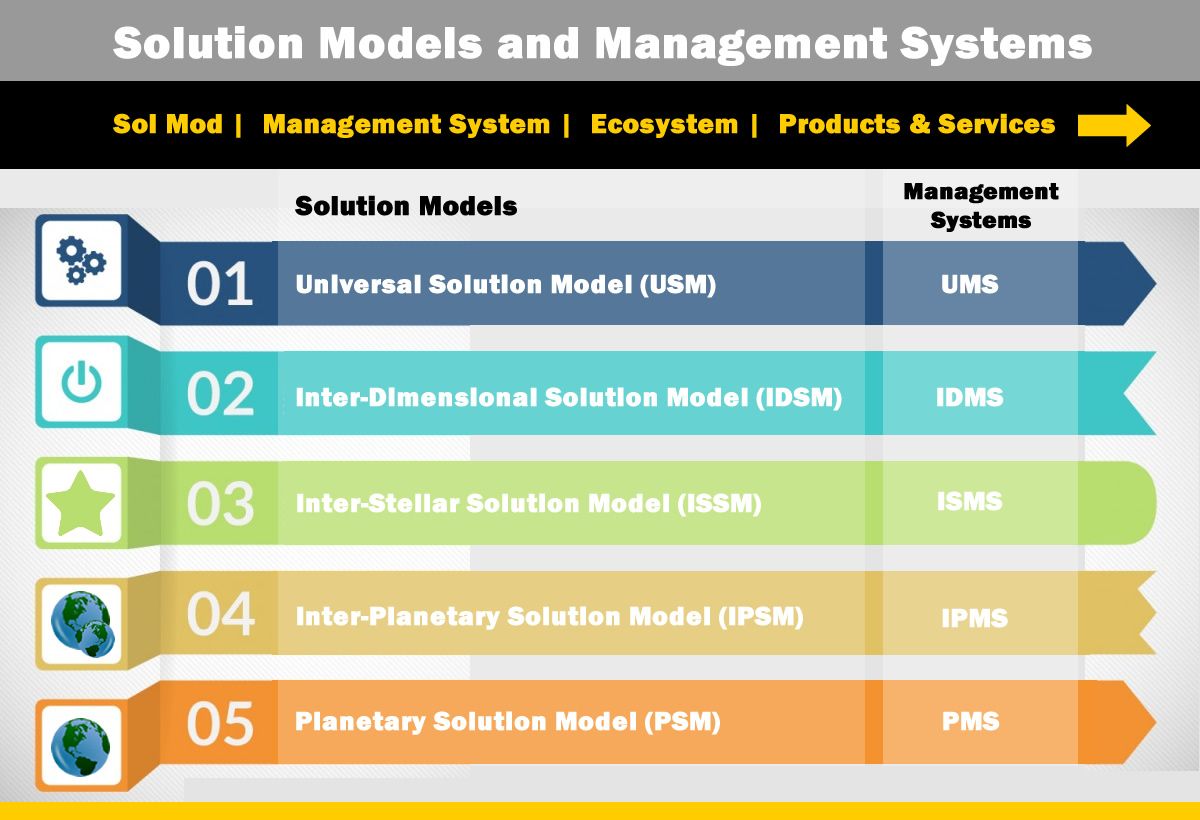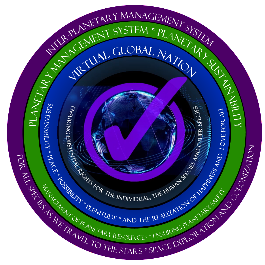The Universal Management System (UMS) declares and defines classes, operations, and procedural classes for all other management system
classes. The inter-dimensional Management System (IDMS) provides classes for the management of inter-dimensional issues.
Solution models and Management Systems
The solution models address infrastructure issues, systemic issues, institutional models, check and balance system design and more all having to do with macro-scale overarching frameworks. The solution models also put a new set of "tool boxes" in place for micro-structural change, growth and transformation. These "tools" are designed for use with 4th industrial revolution components, network effect opportunities, the exponential increases in n-dimensionally connected knowledge bases and more. This exponentially increases economic opportunity, efficiencies in means of production dynamics, transformative problem solving and generative and emergent solution processes. These components form the foundation for a new planetary and inter-planetary and inter-stellar and inter-dimensional realities. They are designed to support self-determinative and self-emancipatory paradigms while drawing on the collective knowledge, wisdom and understanding of a planetary population and beyond.
The Role of Solution Model Frameworks
The "macro" frameworks form the "conditions for emergence" by providing a sustainable, stable, safe haven environment through framework architecture in government and institutional models in conjunction with check and balance system design. The "micro" mechanisms or tool sets provide a new kind of tool use that incorporates mechanisms found in human consciousness, these include self-organizing systems, teleonomic systems and autopoiesis. These tools provide the basis for creative problem solving, creative expression, transformative learning, perceptual shifting and more.
Scope of Management Systems
The management systems start at the Universal Solution Model level and move through the inter-dimensional, inter-stellar, inter-planetary levels, move to the planetary management system, and other management systems. These range from geo-localized systems such as current political models to the implementation and management of segment specific solution models in medicine, economics, energy, education and more.
Overview of Management Systems
Management systems are designed to keep a system working once it is in place. In other words, they are designed to work within a framework that is designed to accommodate wide range exacerbations while being predicated on new systemic models. The new systemic models provide and umbrella framework or architecture that incorporates the realities of change, these include but are not limited to: increasing complexity, systemic amplification, rapidly changing environments, early detection and awareness paradigms, planetary scales, planetary systems, cross-border integration, cross-field inter-connectivity, globalization and more. Each management system sets forth a new kind of meta-level "lever and knob" approach to increasingly complex systems, self-organizing systems, dissipative structures and chaotic systems.
Management System components
Management systems are designed to define threshold conditions, boundary conditions and exacerbatory state change phenomena in earth systems, life systems, economic systems, species preservation imperatives and more.
Management Systems and Event Classes
The management systems are designed to define and track of various event classes that follow along with the dimensionally equivalent solution model classes. The management systems set forth in the USM incorporate the new technology outlined in the technology section of the BlueBook Series.


